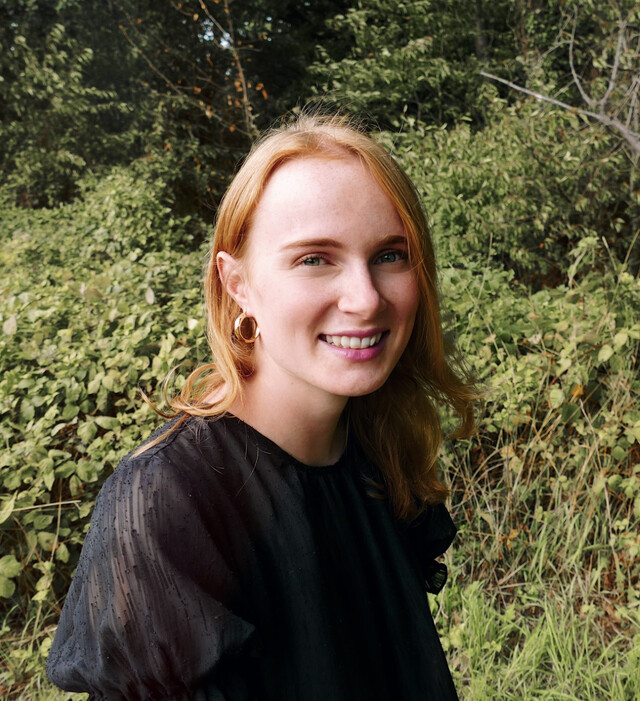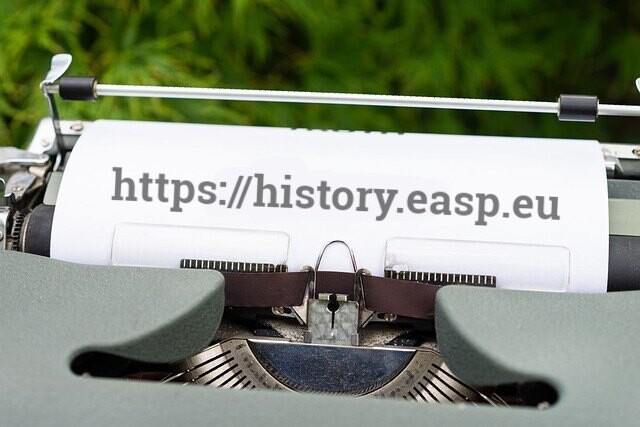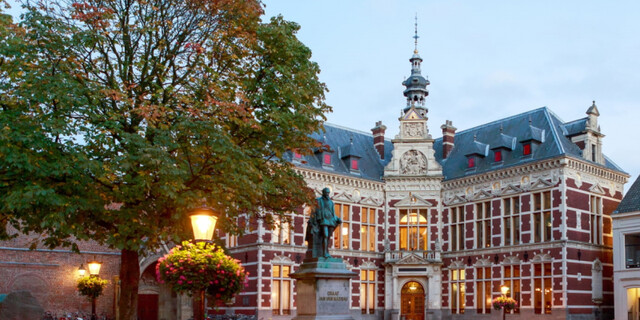| open e-mail in browser • unsubscribe |

|
| EASP Bulletin | www.easp.eu @easpinfo |
European Bulletin of Social Psychology 33,2 (December 2021)EditorialDear friends and colleagues, We hope you enjoy reading this second edition of the Bulletin for 2021.
You will find comments from our president Kai Jonas with updates on
activities and information about new initiatives that EASP will be
introducing shortly. We also warmly welcome our new Media Manager Hannah
Schäfer. There is information about a recent writing workshop organised by
EASP and we also introduce the new editor of Comprehensive Results in
Social Psychology (CRSP), Neil Lewis. We wish you all a happy and relaxing end-of-year break and all the best
for 2022. President's CornerDear colleagues and friends,
Welcome to our new Media ManagerWe are very pleased to welcome Hannah Schäfer as the new EASP Media Manager. Hannah is currently studying in the Masters programme in work and organisational psychology at Mainz after completing her Bachelor's degree in psychology at Frankfurt. She has a wealth of experience using social media for her work. For example, she worked in a language school in Exmouth (UK) where she took care of their appearance on social media. We are delighted to have Hannah working with us. She can be reached at the email address: media@easp.eu.  Hannah Schäfer Writing Training WorkshopOne of the barriers to regional diversity as identified by Nyúl et
al.’s report (EJSP, 2021) and by the diversity task force is
training in scientific writing in English. As a first step toward
addressing this issue, we offered early career researchers—especially if
coming from underrepresented regions or not having access to an academic
writing workshop in their current program—an opportunity to participate
in workshop on scientific writing and publishing. The workshop was
delivered by Marco Brambilla and Kai Epstude. It was a hands-on workshop,
in which participants (advanced PhD or post-doc students) received feedback
about manuscripts they are about to submit.
“The workshop provided a clear and complete overview of the steps
to take when preparing and submitting a manuscript for publication. This is
very important, because, at least in my case, there is nobody that teaches
PhD students about these things, which are often just taken for granted.
The way scientific writing and especially the way publishing works is to a
young academic what sex education is to a teenager: fundamental, but
missing in public education. The learning environment benefitted from the
experience of two established researchers, professors and editors, who
could enrich the discussion with past experiences and who created a safe
space where students could ask all their questions.” “In the big group, I feel shame to speak or express my opinion but
[…] today I gave them my feedback feeling confident I proud of my
work.” “I appreciated the sincerity of the moderators. They made me aware
that writing is not easy, and everyone (even renowned professors) can have
difficulties and must therefore find strategies.” “In my research team we speak in Spanish about our research. So, I
never use the English for speaking about my job […] Speaking about our
research with other partners it essential.” “I really enjoyed the tips, useful information and kindness you gave us!” We sincerely thank Kai and Marco! Also, because the number of applicants was much higher than the number of available spots in the workshop, we intend to run another workshop in 2022. Member Contributions to the History WebsiteWe would like to remind you about the website on the history of European
social psychology: https://history.easp.eu. Thank you very
much to colleagues who have contributed so far. The website is still very
incomplete, however, and we write again to request more contributions.  An online compendium of ideas, schools and people in the field of Social Psychology New Editor of CRSPOne of the current editors in chief at CRSP, Joe Cesario, will have to step down from his editorial position and take on new challenges. EASP would like to express its sincere gratitude towards Joe, one of the founding editors of CRSP, for his tremendous service to the community in having supported this journal and pre-registered research in social psychology for eight years. Joe's position as co-editor in chief will be taken on by Neil Lewis, starting from September 2022. Neil is already an associate editor at CRSP and ideally suited to help develop CRSP further. Upcoming Events and AnnouncementsEASP Hybrid Meeting: "20 years of dehumanisation: Rethinking
dehumanisation to confront social discourses that treat people like
non-human beings" https://www.easp.eu/news/itm/20_years_of_dehumanisation__conf-1302.html Twenty years since the first empirical papers on dehumanisation were published, we return to the spiritual home of dehumanisation research for a meeting Thursday, 28 April, 2022 through Saturday, 30 April, 2022, in Tenerife, Spain. This meeting will address dehumanisation and objectification research since the MeToo movement, dehumanising social media rhetoric associated with increased nationalism, and the rise of populist opinions against immigration. The meeting is open to EASP members and non-members. Registration instructions for the meeting can be found through the meeting webpage. Everyone interested in research related to dehumanisation or objectification is welcome and encouraged to register!
In our endeavour to collaborate more with sister learned societies, IARR (International Association for Relationship Research; https://www.iarr.org/) and EASP have agreed to start a joint symposium series. The first symposium will be held May 12 2022, 16-19h GMT+1 on the topic “What's love got to do with it? Diversity in couples and close/intimate relationships”. The aim of this symposium series is to bring research on couples and close/intimate relationships together from both a social psychological and an interdisciplinary relationship research perspective. We seek to jointly explore novel research avenues related to couples and close/intimate relationships, for example related, but not limited to topics such as queer lives, patchwork families, polyamory, relations at old age, interfaith and interethnic, age and power differences; to also discuss adequate research methodologies; to investigate the social perception of such couples and relationships. A Call for Papers will follow soon.
https://www.spssi.org/index.cfm?fuseaction=page.viewPage&pageID=2734&nodeID=1 Although education is often seen as the great equalizer, socioeconomic status (SES) continues to be one of the strongest predictors of academic outcomes. Psychology research into educational inequalities has shifted from individual-level traits to focus on institutional, cultural, and societal factors, such as class-based stereotypes, independent norms, and the psychological impact of conditions of poverty. Such an orientation is starting to reveal how potential cognitive, emotional and behavioral strengths afforded by situations of adversity or working-class environments may be devalued by institutions designed for middle class people. This Small Group Meeting aims to contribute to this shift toward higher levels of analysis in the study of the link between SES and educational outcomes, by bringing together different subfields of research (e.g., behavioral economics of scarcity, sociocultural psychology of social class, behavioral ecological study of responses to adversity), and connecting them with insights from sociology and social policy. Based at the London School of Economics our program will enable participants to share cutting-edge psychological research on how socioeconomic disparities unfold in educational settings across life stages, while also hearing from leading researchers on the topic from neighboring social science fields. The Role of Emotions in Interethnic Relations 7 September 2022 until 9 September 2022
Despite growing globalization and increased opportunities for interethnic encounters, the segregation and discrimination of ethnic minority communities persists. Emotions, which are inevitably involved in social relationships, might be one important reason for the persisting lack of but also the emergence of social acceptance and empowerment of ethnic minorities. The proposed meeting aims to connect scholars examining emotion expression and perception in the context of interethnic relations. We therefore invite work from diverse domains of social psychology, including intergroup emotions, emotion expression, acculturation, social identity, collective action, or communication research, among others. The meeting aims to contribute to understanding a) emotions felt toward an ethnic outgroup and their implications; and b) reactions to emotions expressed by an ethnic outgroup. Both may provide valuable insight on how to promote equal treatment of ethnic minority groups and improve interethnic relations. The conference program will include several social events as well as two invited talks on the role of emotions in the context of interethnic relations by Dr. Jozefien De Leersnyder and Dr. Gijs Bijlstra. The meeting will take place in the beautiful city of Utrecht (at the University Hall), with easy public transport connections to Amsterdam’s international airport. A fee of 150 EUR per participant will apply for EASP members (non-member 200 EUR). Participation will be free for PhD students and postdoctoral researchers who are EASP members (non-members 70 EUR). We cover the costs of meals and accommodation for all participants. If you are interested in participating, submit your abstract via https://forms.gle/sPKdgWoMxHuYULU18 by March 15. We invite papers to be presented in regular paper sessions (15min), flash talk sessions (5min), or poster sessions.  The meeting will be located at the University Hall in the city center of Utrecht. New Members of the AssociationThe following applications for membership were approved by the Executive Committee in November 2021. Each of the applicants will become a member of the EASP in the category indicated below. Names of members providing letters of support are in the third line of the entry: Full Membership
Postgraduate Membership
Grant AwardsThe following members have received a grant from the EASP: Stefanie Hechler (Seedcorn Research Grant): "Third-Party Punishment – a communicative act with victims" Caterina Suitner (Collaborative Research Grant): "Towards more sustainable organizations: the role of self-management for workers' well-being and a more equal organizational environment" Mirjana Rupar (Travel Grant): "Establishing collaboration with researchers from Chile to enhance research on national identification and intergroup conflict and reconciliation" Julia Schnepf (Travel Grant): "Investigating the role of literacy and
sexism on readers’ evaluation of Felix Grundman (Travel Grant): "Exploring the relationship between negative feedback, emotion (regulation), and goal (disengagement)" RKTS (Research Knowledge Transfer Scheme) Grants RKTS are intended to fund initiatives whose ultimate purpose is establishing networks of researchers from underrepresented regions, backgrounds, or focusing on innovative or underrepresented topics or methodologies.
The EASP established this initiative due to the growing evidence that researchers with double burdens (e.g., homeschooling children or caring for family members while also working) are suffering proportionally more in terms of scientific productivity during the Corona pandemic. This situation is particularly detrimental to women, as it exacerbates existing inequalities, and junior scientists without a permanent position (see also these articles on the impact of COVID-19 on science). The funded projects were as follows: Maria Chayinska: “Nobody is safe until everyone is safe: Towards understanding the determinants of public support for the global COVID-19 vaccine aid in high-income countries" Joanne Smith: "Understanding Descriptive and Injunctive Norm Conflict (DINOCO)" Claudia Sassenrath: "Exploring victim blaming in everyday life: Applying ambulatory assessment to examine the relation of everyday sadism and positive affect in victim blaming" Societal Relevance of Social Psychology Grants Currently, a large number of societally relevant issues warrant further investigation and social psychology is well equipped to contribute to these matters. The EASP called for proposals on any topics. Examples given were, but were not limited to, (post-)Corona related issues, refugees and migration, political populism and extremism, global warming and sustainability, or health behavior change. The funded projects were as follows: Tijana Karic: "Exploring the space of reconciliation: the case of Bosnia and Herzegovina" Andrew Moynihan: "Existential escape in times of Covid-19: The tole of hedonic behaviours in managing existential threats" Executive CommitteeMałgorzata Kossowska (Meetings Officer),
malgorzata.kossowska@uj.edu.pl Roland Imhoff (Journals Officer), roland.imhoff@uni-mainz.de Nina Hansen (Treasurer), n.hansen@rug.nl Nurit Shnabel (Diversity Officer), shnabeln@tauex.tau.ac.il Karen Douglas (Secretary and Membership Officer),
k.douglas@kent.ac.uk Monica Rubini (Grants and Membership Officer), monica.rubini@unibo.it Kai Jonas (President), kai.jonas@maastrichtuniversity.nl Oladipupo Shobowale (Executive Officer), office@easp.eu
|
|
Executive Officer |
Secretary |
Media Manager |
| You are receiving this message because you are subscribed to the EASP Bulletin mailing list. If you no longer wish to receive this mailing please click here to unsubscribe. Please do not forward this email without removing this paragraph, as otherwise your recipient(s) may inadvertently unsubscribe you from the mailing list. |